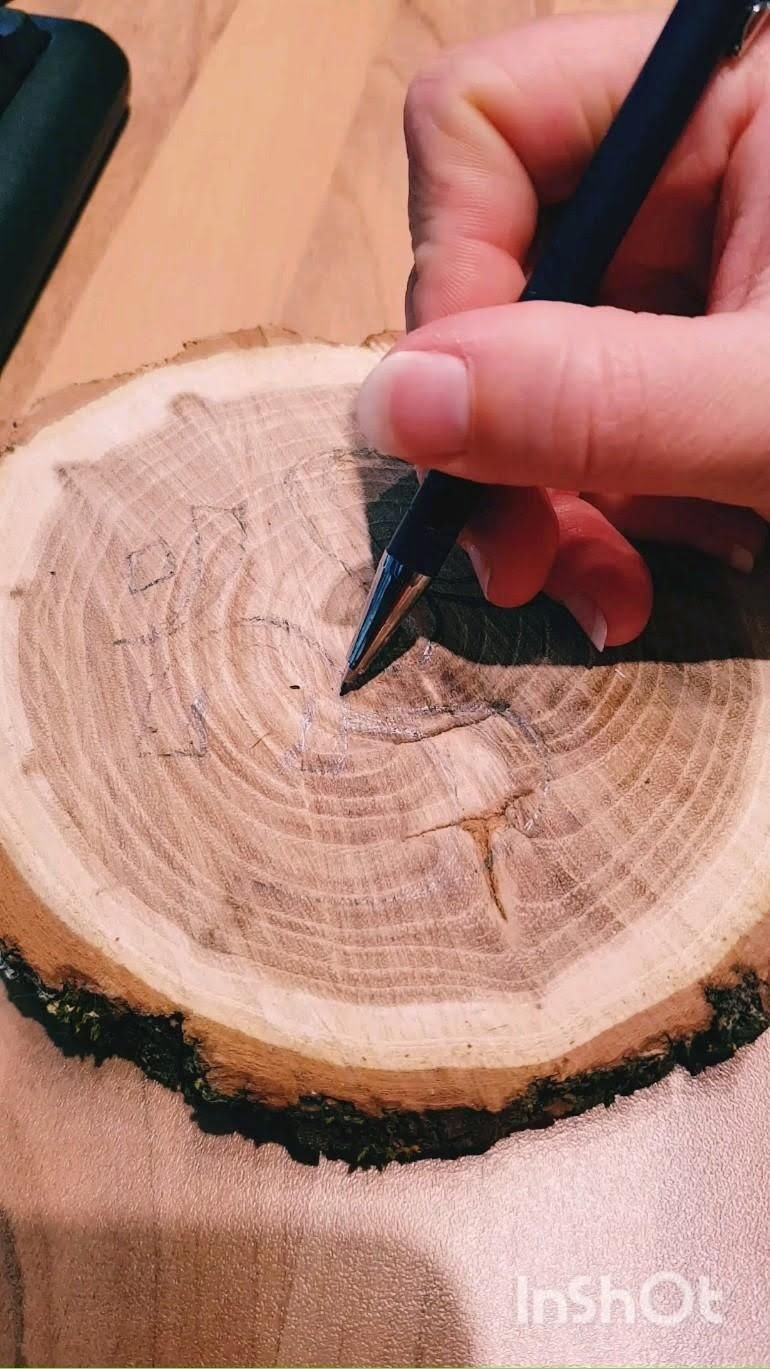Introduction to CNC Machine Woodworking
CNC Machine Woodworking (Computer Numerical Control Machine Woodworking) is a process that uses computers to automate and control the precision machining of a variety of wood components. This method of construction allows greater accuracy, efficiency, and consistency while saving time and money. CNC woodwork has become increasingly popular over the years as it offers a wide range of possibilities for virtually any type of project.
Definition: CNC Machining is used to shape objects by routing out portions with a cutting machine based on instructions obtained from computer programs. It eliminates the need for manual fabrication, reducing labor costs and potentially increasing accuracy.
Benefits: CNC machines allow users to easily create intricate shapes and designs which are very expensive or even impossible to make through human labor alone. Additionally, the precision offered makes them perfect for creating parts with tight tolerances for use in unique processes such as robotics or even creating prosthetics for amputees. By employing CNC machines, cost savings are often achieved compared to traditional workflows as materials and tools don’t need to be constantly replaced throughout the process.
History: The first CNC Woodwork machines were introduced in the early 1970s, although they were initially used only for metalworking operations since there weren’t many advantages offered by using them for projects related to wood products. Nowadays, however, more efficient computer systems have allowed CNC machines to be used extensively in all types of industrial production including woodworkers’ shops as well.
Popular Projects: Popular projects made with CNC machinery include cabinets, entertainment centers, furniture pieces, banks, signs and muralsim handmade wooden jewelry boxes customized with engravings or cuts made according to exact specifications provided by clients who desire customization options far beyond what is possible with traditional techniques
How CNC Machine Woodworking Works
CNC machine woodworking is a process that uses computerized numerical control (CNC) machines to produce wooden components for furniture, cabinets, toys, and other crafts. The CNC machine is programmed with a set of instructions that tells it how to precisely cut and shape a piece of raw material into the desired outcome. This technology has allowed for high-speed production that requires far less human intervention and oversight than more traditional techniques such as cutting, sanding, or routing by hand.
Advantages of using CNC machine woodworking include a far faster production rate compared to traditional methods. They can not only produce faster output but also accuracy while machining complex shapes and features which are near impossible to do with manual processes. CNC machines are ideal for consistent, large-scale production with intricate details such as ornate carvings, multiple layer designs, inlays, and curved shapes. Furthermore, CNC machines allow designers the freedom to experiment with different sized material due to their adjustable bed size and cutting tools. Additionally, they require minimal maintenance since they feature fewer moving parts when compared with manually operated ones. Finally, they create fewer safety hazards since they reduce the risk of injuries caused by handling powered tools or sharp blades during operation.
Benefits of CNC Machine Woodworking
CNC machine woodworking is gaining popularity in industries around the world and for good reason. CNC machines are highly efficient, accurate and reliable, making them ideal for producing high quality parts for furniture, architectural components, cabinetry and so much more.
The key advantages of using CNC machine woodworking include superior accuracy with some machines offering up to 0.005mm precision in cutting and shaping, quicker production times due to automated processes, improved efficiency resulting from hands-free operation and repeatability with no loss of quality across multiple production runs. Moreover, reduced waste is another benefit as complex shapes can be cut from larger pieces of raw material without any difficulty.
In addition to these direct benefits of CNC machine woodworking there are also several other considerations that should be taken into account. These include environmental friendliness due to reduced emissions during manufacturing process, minimal need for manual labor compared to manual processes, the ability to safely deliver components meeting all safety standards such as fire prevention or structural stability requirements and finally cost savings associated with economies of scale by having this automated process in place.
Different Types of CNC Machines and Uses
CNC woodworking machines are becoming increasingly popular with woodworkers of all skill levels for making furniture, cabinets, window frames and more. CNC stands for Computer Numerical Control, which allows a user to create intricate patterns in wood quickly and accurately. Different types of CNC machines vary in size and functionality but the principles process remains the same; a computer controls the machine’s cutting tools to make precise cuts in softwood or hardwood.
Larger-scale industrial CNC machines are capable of handling large pieces of timber and can create complex joinery work as well as intricate carvings and designs. Many come with automated features such as clamping systems, routers, saws and other tools that help make accurate cuts easier while minimizing wastage. Smaller tabletop models are still able to produce impressive results but may require more set up time before each project can be started.
More recent advances in CNC technology have made these machines even more versatile. Now they are also used for printing 3D objects out of a variety of materials including rubber, metal, plastic and glass by extruding heated material onto surfaces or ‘printing’ it layer by layer using specially-designed software. This type of machinery is also used for engraving images on pieces of wood or creating highly detailed designs with laser technology. Overall, CNC machines provide an efficient way for woodworkers to expand their creative skills without having to worry about safety hazards or hand-crafted mistakes that can happen when using manual tools for carpentry tasks.
Essential CNC Machine Woodworking Skills for Beginners
CNC machine woodworking is a craft that requires precision, skill and dedication. As a beginner, you need to acquire fundamental knowledge and techniques in order to get the most out of your CNC machine.
Some of the basics required to master CNC machine woodworking include understanding safe shop practices, reading blueprints and schematics, knowing appropriate tools and materials for different projects, setting up wood stock pieces with templates or clamps, using routers, saws and other cutting tools safely and efficiently in order to cut stocks accurately and precisely, selecting proper tool bits for specific operations, selecting appropriate speeds for various operations using a variable speed control dial on the machine as well as setting tool offsets correctly on the CNC software.
In addition to these fundamentals of CNC machine woodworking skills, beginners should also understand concepts such as three-axis machining setups, how to create complex shapes with CNC systems such as run-around pockets and slots; parametric programming which allows programs to change values automatically; G code which defines movements for a particular operation like drilling or threading; 3D carving capabilities; CAM (Computer-aided Manufacturing) programming which generates commands from design drawings; CAD (Computer-aided Design); prototyping processes utilized in project development and finally virtual machines used for final production runs.
Choosing the Right CNC Machine Woodworking Tool for Your Project
When selecting a CNC machine woodworking tool for your project, it is important to consider the size and scope of the job as well as the tools necessary to complete it. The machines and tools used should have features that allow them to perform certain functions with precision and efficiency. While some may prefer manual equipment, most professionals will opt for computer controlled machinery in order to ensure accuracy and quality of results.
One of the first considerations should be the type of material being used. woods such as oak, walnut, cherry, or mahogany require specialized cutting tools which can only be produced through a CNC machine woodworking tool. In addition, the type of finish you wish to achieve must be carefully determined in order to find compatible hardware and software for the job. If a professional finish is desired, then match drilling holes or intricate carving techniques may also be necessary.
Another factor is the complexity and speed of processing needed in order to complete various tasks efficiently. Some larger projects may include multiple components that need constant monitoring in additional programs or controllers, making a faster model more suitable for performance levels required. Finally, custom software must also be considered when selecting a CNC machine woodworking tool because this will determine how quickly average tooling control parameters are completed.
Making the Most of Your CNC Machine Woodworking Setup
CNC (computer numerical control) Machine woodworking consists of using a CNC machine to create everything from furniture pieces and art objects to basic furniture components. It has been used for decades and revolutionised the way in which even small operations can produce intricate, automated parts. No matter the scale of your operation, once you’ve got a good setup in place, there are certain principles, tips, and techniques you can use to elevate your CNC machine woodworking and get the most out of it.
The right equipment is key when it comes to CNC machine woodworking. Your router should be able to handle large parts with reliable accuracy. The spindles should fit snugly into the size and design requirements of your machine as they come into contact with material throughout the workflow”grab handles should be thick and have high-quality bearings for long lasting use. Vacuum hold downs should be made out of steel so that they won’t bend over time from usage or heat build-up. And finally, use a dust collection system located directly underneath the machine to keep your workspace clean throughout projects.
It’s also important to recognise the importance of safe working practices when you’re dealing with CNC machine woodworking set ups. While it can seem tedious and time consuming, making sure that all switches are off and covers on all units at all times pays off in safer work practices overall and fewer accidents occurring while you’re creating projects.
Finally, when starting up a whole new project or undertaking changes on an existing one, try using air blowing or compressed air on cutting heads to make sure all dust buildup from older projects is eliminated before beginning new ones. This will save time as well as increase cutting performance by making sure that cones are always spinning freely without debris obstruction or compromising quality results due to lack of precision.
Useful Tools and Resources to Elevate CNC Machine Woodworking Projects
CNC machine woodworking is a field that involves operating machines that are programmed to cut and shape wood into specific shapes and designs. This type of work requires highly-skilled professionals, as precision and accuracy is paramount in order to create quality products. There are several useful tools and resources available to those who wish to learn more about CNC machine woodworking and elevate their projects.
One of the most important resources for any CNC machine woodworker is the instruction manual for their particular piece of machinery. Familiarizing oneself with the specifics of one’s machine will help ensure smoother operations, better productivity, and fewer errors. Additionally, many manufacturers provide examples of projects or tutorials that demonstrate how to use the machine effectively.
Another valuable tool for CNC machine woodworkers is software designed specifically for their craft, such as CAD/CAM software. Programs like this allow users to quickly draw designs on their computer screen and then transfer them directly to their CNC machines where they can be cut with MDFs or other compatible materials. Most programs come with video instructions as well as support forums wherein experienced users provide helpful tips and advice.
Having access to quality lumber is another key aspect of successful CNC machine woodworking projects. Finding suppliers with an assortment of species, grades, and types should not be difficult”many lumber yards have websites where orders can be placed online or phone numbers that may be called for assistance in selecting just the right pieces for any given project. In addition, having multiple sources from which to procure materials ensures consistent pricing across different types of wood; some cnc machine woodworking companies even buy timber in bulk from select mills so as to get discounted rates that help make larger-sized orders more cost-effective
Finally, utilizing specialized tools belonging specifically to this line of work such as router bits, drill bits, jigsaws etc., will save time while ensuring precise results every time a new project arises”especially in situations involving production runs requiring numerous identical parts
Recent Advances in CNC Machine Woodworking Technology
CNC machine woodworking has advanced rapidly in recent years with the development of new technology. CNC stands for Computer Numerical Control, and this type of machine tool allows users to quickly and accurately create complex parts. Rather than using manual tools like a saw or jigsaw and hoping to get the desired silhouette, CNC machines automate the process while still providing total accuracy.
As technology progressively gets more efficient, new equipment is becoming more capable with each upgrade. Nowadays, standard systems include linear motors that allow for automated movement along all three axes (X, Y & Z). This makes it simple to not just cut out pieces but also drill holes and route edges accurately. Additionally, some systems are equipped with higher end spindles that use high frequency inverter motor for cooling air that keeps precision intact even at increased speed.
Along with improved movement control, manufacturers are now introducing models with better dust collection capabilities – meaning there is less post-processing needed. Advanced computer software used for programming CNC machines is also becoming increasingly accessible along with a growing selection of CAM (Computer Aided Manufacturing) applications that enable more powerful 3D modeling capabilities as well as easier control over tool paths. As well, specialized operating systems like DeviceLink are making it much simpler to transfer information between various types of CNC machines while cutting setup times drastically.
It seems inevitable that advances in CNC machine woodworking will continue to develop over time; helping make it faster and ultimately resulting in a higher degree of accuracy which benefits many areas including furniture design, cabinet making and other highly detailed projects without significant added labor costs.
Conclusion
CNC Machine Woodworking offers countless benefits for both homes and businesses. From increased accuracy in cutting, to the ability to access the most intricate designs, to savings in time and money spent on labor costs, CNC Machine Woodworking is a great option no matter where it’s being applied. The fact that this technology is only becoming more advanced over time makes it an even greater asset. CNC machines can help small operations create complex patterns and shapes while keeping costs low as they don’t have to hire additional workers. Additionally, these machines require very little maintenance, ensuring a high-quality finished product every time. Homeowners looking for beautiful wood working projects should consider CNC Machine Woodworking for their needs; with its precision and accuracy, it can bring any idea to life faster than ever before!

Hi everyone! I’m a woodworker and blogger, and this is my woodworking blog. In my blog, I share tips and tricks for woodworkers of all skill levels, as well as project ideas that you can try yourself.





